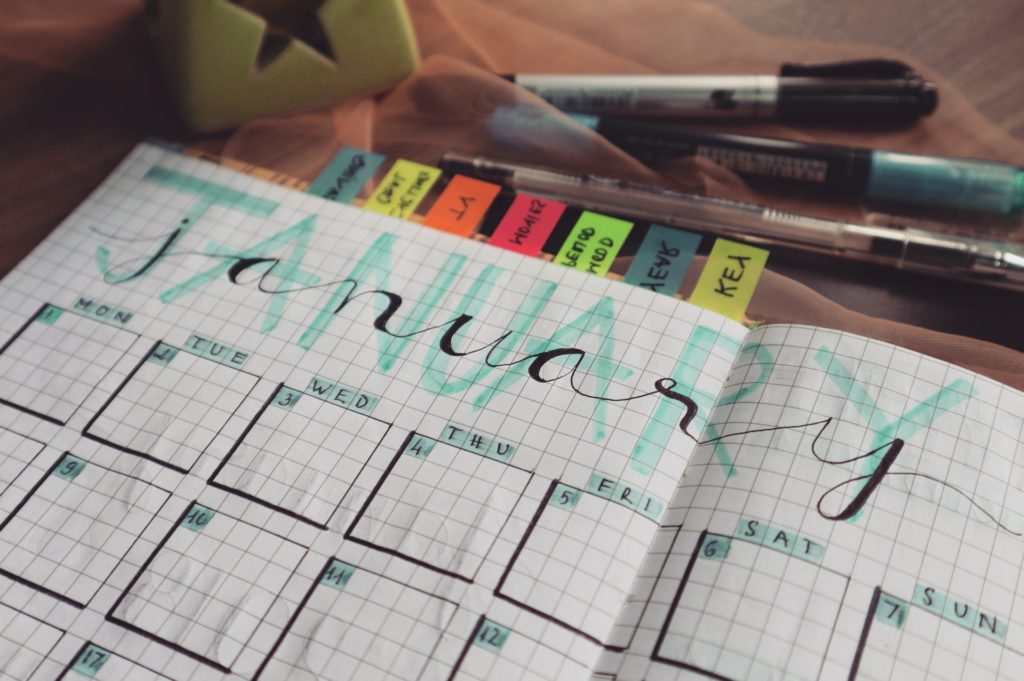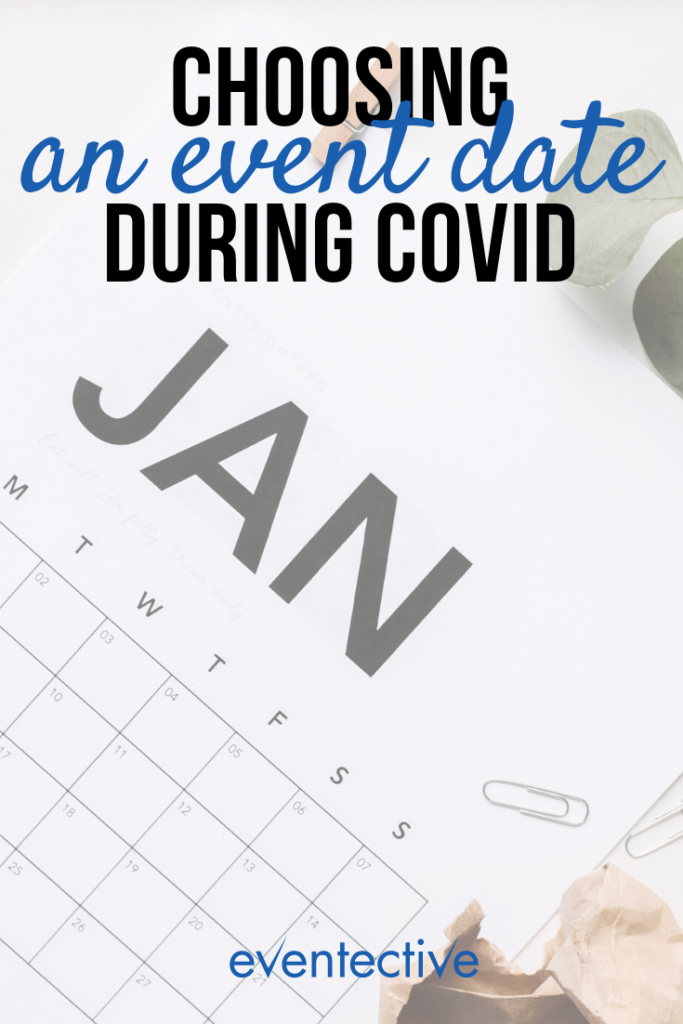
COVID has turned the event business upside down. Most notably, couples worldwide are postponing their weddings or hosting a virtual celebration instead. But the wedding industry isn’t the only event-driven industry that has hosts and professionals scrambling. Nearly every industry is affected by the inability to safely meet in person, including the music and publishing industries. As you’re rescheduling your wedding or just starting the planning process, you’re probably wondering, “How do I choose an event date during COVID?”
Of course, choosing the right date for any event is critical to its success. It will affect the venue, availability of vendors, and even attendance. But trying to navigate all of that and a global pandemic is a challenge. On the one hand, if you plan the event too soon, you might have to reschedule (again, for some!) if the outbreak isn’t under control yet. But on the other hand, if you wait too long, you may struggle to get your audience to commit to attending.
While there isn’t a simple answer to your “choosing an event date during COVID” question, there are some guidelines that you can follow to keep you and your guests safe—and to keep you from rescheduling again and again. Use these tips to choose the right event date during COVID for you.
Consider “Off” Days

While you’re choosing your event date during COVID, many other hosts are, too. And when you combine new events with rescheduled events, popular times and days of the week will book fast in the coming months and years. If you’re able to, choose a date or time that won’t be so coveted post-pandemic. For example, many couples will still want a weekend wedding. So, if you’re able to book a mid-week wedding, you may have better luck getting your desired date. (Plus, you may be able to book at a lower rate!)
Now, there is risk in choosing an unpopular date—your ideal venue and vendors might not be available. So before you start hunting for the perfect event date during COVID, establish your priorities. Ask yourself, “What is the most important part of this event?” If the venue is the top priority, choosing an unpopular date might be the perfect solution, because they’ll probably be available. But they may also not be open that day—so you’ll need to go to plan B. However, if the date is your top priority, you’ll be able to venue shop until you find the perfect spot.
Overestimate
Right now, we don’t know when the pandemic will be over, or at very least manageable—that’s one of the problems with choosing an event date during COVID. To avoid a second or third rescheduling, we recommend choosing a date that is at least six months out. This gives you time to see how the situation will change and if it will get better. Plus, your guests need advanced notice so they can decide whether they’re going or not.
For events that are based on a specific date, like a holiday party or annual work summit, this might be impossible. In that case, we recommend going virtual or postponing until next year. But for weddings and personal events, you may be flexible enough to reschedule for a winter wedding—or even wait a year and plan for next summer.
Switch to Virtual

Does your event need to be in person? And, if so, can it wait 6 months—or more? If you answered No to both of those questions, going virtual can save you a lot of hassle and re-planning. Most importantly, you’ll be able to keep your original date. That means you won’t need to choose a new date, secure a venue, notify attendees, and manage their cancellations.
When you stick with your original date, your guests don’t have to re-check their calendar, and you don’t risk a spike in cancellations. It is important to note, however, that some guests will still cancel because they don’t have the right tools to join online or because their babysitter fell through. (You know, because of Coronavirus.)
Virtual weddings are a popular wedding trend now, too. Some couples are choosing to live stream their wedding ceremony, so friends and family members can watch. However, others are creating group video calls, so that everyone can chat and propose a toast afterwards. Whichever method you choose, there are plenty of ways you can include your bridal party and family into your special, virtual day.
Know the Law

Before you choose a new date, know what your state does and doesn’t allow. There may be a maximum capacity for group gatherings or mask and sanitation guidelines to follow. Whatever the requirements are—we strongly encourage you to follow them! For starters, those guidelines are in place to keep you and your guests safe. Plus, if you’re planning a public event, you run the risk of a PR debacle if word gets out that you hosted an event that was dangerous for your guests.
Check your government’s website regularly—and the destination city’s website, too, if you’re hosting out of town. And even if your event is 12 months away, plan on following the guidelines laid out by your state, city, or district. It’s better to have left over hand sanitizer than none at all!
Have a Preparedness Plan
Now, these guidelines might not be in effect during your future date. Or they could become more strict. And because we don’t know when this will end, there’s still a chance that your new event date will be interrupted by COVID. So when you’re making your planning check list, add safety protocols for COVID. For example, how will guests stay six feet apart? How often will surfaces be cleaned? Think through the practicality of following the state or city guidelines—and adjust your event as necessary. This is a new world for all of us where flexibility will reign supreme.
We also recommend listing your preparedness plan on your website, in detail. If you aren’t addressing the concerns that are on everyone’s minds, your guests may cancel their reservations, or never sign up in the first place. You can also consider posting a shortened version of your plan at the entrances to your venue. This will show guests that you’re committed to their safety. (Plus, it will notify the guests who didn’t see the memo online!)
Conclusion

Choosing an event date during COVID can seem intimidating. After all, this is new territory for all of us! But you can still make an informed decision that will benefit you and your guests. Most guests are uncertain, just like you. So they will understand changes of plans or postponements. Just make sure to clearly communicate those decisions to them!
Have you rescheduled any events? What else are you considering when you choose a date?

